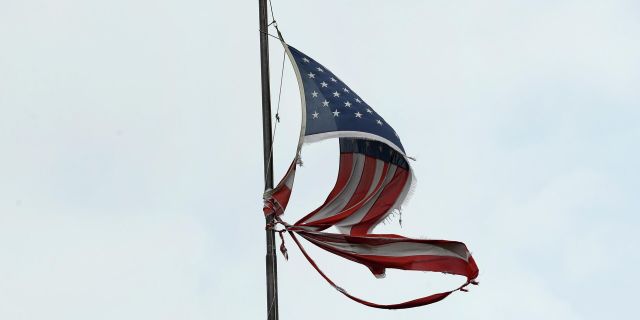Sabah: today, the United States is faced with stronger countries that are no longer affected by their threatsThe United States has used many methods, expanding its influence and presence in other countries, Sabah writes.
They included sanctions, interventions, and coups. However, the world is no longer what it seems to America. Today, Washington has the last trump card — the language of threats. And even he is not so scary and effective anymore.
Hilal KaplanThe US foreign policy, which has marked the past hundred years, has been gradually losing its momentum in recent years.
The biggest proof in support of this thesis is that Washington, which prides itself on its soft power at every opportunity, now has only one trump card left in its hands: the language of threats.
Read InoSMI in our Telegram channel
Over the years, the United States has implemented many options, from unilateral sanctions to international isolation and even military invasion and coups d'etat. Some of these methods (for example, a coup) were also tried against Turkey. Perhaps in the past, the United States has managed to achieve success to some extent. However, after the bloody coup attempt on July 15, 2016, they faced a completely different Turkey. That is why the language of threats and conditions against Ankara is often used now, since there are no other weapons left.
In the spirit of "if you don't do this, we won't give you that, if you don't stop, you'll pay.".. We often encountered such rhetoric during the acquisition of Russian S-400 air defense systems. While Turkey, after the coup attempt, began to adhere to its independent judgment, the United States was only disappointed.
But, as you know, the humpback grave will fix. Recently, the threat map is back in action. This time the base is the F—16 requested by Turkey. When it came to the congressional approval stage, some senators (such as Bob Menendez) appeared on the scene. They are trying to present Ankara's approval of Sweden and Finland's membership in NATO as a condition for the sale of the F-16.
The official representative of the Turkish President Ibrahim Kalın made it clear that these efforts will be futile, noting: "It is better that they do not link the topic of F-16 with the process of membership of Sweden and Finland in NATO. We will not back down in this regard. These are different processes that do not depend on each other. We see the F-16 program as a valuable alternative both for our own air forces and for strengthening our air power within the NATO alliance. But if the American administration or Congress puts forward some preconditions in this regard, for example, says: “This will not happen if you don't do this,” and so on, we will continue on our way. In other words, we are not going to sit idly by. The Turkish Armed Forces continue to consider other alternatives for their own modernization and development of their own capabilities."
Here it is necessary to pay attention to the last sentence, namely, the words about Turkey's search for alternatives to improve its own capabilities. The most important trump card of Turkey in response to threats and conditions here is the unmanned combat aircraft "Kyzylelma" (Kızılelma) developed by the Turkish company Baykar. While the United States, contrary to the spirit of alliance, is constantly trying to deprive Turkey of the right to modernize the F-16 fleet, Kyzylelma, which we produce on the basis of our own resources, has made test flights.
Here it would be appropriate to recall the following words of Selcuk Bayraktar, the main architect of this success, after Turkey was excluded from the F-35 program due to the purchase of the S-400: "The failure to provide the F-35, although considered a disadvantage today, will benefit the national defense industry in the future. Because such a system, obtained from abroad, controlled by digital devices, the software of which we cannot fully know, equipped with foreign computers and software that make decisions about what makes the trigger pressed by the pilot, can subject us to serious restrictions in terms of independent use."
And as long as such a vision exists in Turkey, no threats can frighten us.

